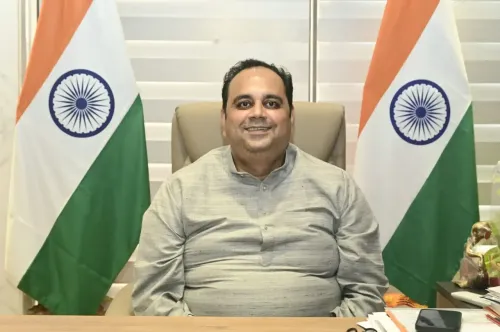Did a Karnataka Court Grant Divorce Due to Cruelty and Bigamy?

Synopsis
Key Takeaways
- Divorce granted on grounds of cruelty and bigamy.
- Husband gathered evidence of wife's illegal marriage.
- No alimony awarded to the wife.
- Couple married in December 2018.
- Case highlights importance of legal recourse in marriage.
Mangaluru, May 14 (NationPress) A court in Karnataka has ruled in favor of a man's request for divorce, citing cruelty and bigamy on the part of his wife.
This decision was made by Principal Judge Lakshminarayana Bhat K. at a family court in Mangaluru.
In issuing the order, the court stated, "Based on the findings presented, the petitioner (husband) has successfully demonstrated that he has suffered cruelty and harassment from the respondent due to her second marriage while still legally married to him."
The court further declared, "The respondent (wife) is not eligible for any permanent alimony or maintenance. The petitioner is entitled to a divorce decree."
Uday Nayak, who resides in Mundabi house in Mangaluru district, filed the petition seeking divorce on the basis of cruelty under Section 13(1)(i-a) of the Hindu Marriage Act.
In his pursuit of justice, Uday Nayak took on the role of a detective to unveil the truth about his wife.
He uncovered her illegal marriage while they were still married, even orchestrating a job interview to extract details about her remarriage.
The wife had demanded a staggering Rs 3 crore from him.
The court denied her any alimony, instead instructing both parties to return each other's gold and ordering the wife to pay Rs 30,000 to the husband to cover his expenses.
After the ruling, Uday Nayak expressed his relief, stating, "My family and I have endured a lot in recent years. Although my ex-wife had a good income, she sought exorbitant maintenance and alimony from me. I persevered and provided evidence of her deceit to the court. I am grateful to the judge for this ruling. Bigamy is a crime, and she should face consequences for it."
The couple had wed on December 31, 2018, following traditional customs. Following their marriage, they lived in a rented property in Bengaluru.
The wife was employed at a reputable IT firm in Mumbai and transferred to Bengaluru after their marriage.
Uday alleged that his wife had a prior relationship before their marriage, which continued afterward.
It was also claimed that the wife experienced severe depression.
She contended that her career was a priority, which led to mental distress for Uday and his family.
As their relationship soured, the wife filed a police complaint for domestic violence just a week before his sister's wedding.
Uday obtained bail.
He further accused her of remarrying on March 13, 2023, in Maharashtra and subsequently changing her name, which was published in Maharashtra Shasan Rajpatra.
Uday shared that he arranged a Zoom interview with the respondent, during which she confessed to her second marriage.
In response, the wife denied all allegations made by Uday, claiming he coerced her into aborting their child and asserting that he was not financially stable.
She also accused him of expelling her from their home.
The wife alleged that Uday compelled her to engage in unnatural physical acts and insisted she have relations with his friends.
However, the court noted that the wife failed to fulfill her marital duties and underwent an abortion against his wishes.
She was often preoccupied with social media.
Additionally, she filed a false police report against Uday and his family.
The court concluded, "During cross-examination, the respondent could not substantiate her claims that the petitioner insisted on unnatural physical activities or relationships with friends. The evidence indicates that the respondent made false allegations against the petitioner."
The court determined that the respondent entered into a second marriage while still legally wed to the petitioner, rendering her ineligible for permanent alimony.
The ruling was issued on April 23, and certified copies of the judgment were obtained on Tuesday.
Senior counsel Vishal Shetty represented the petitioner.









